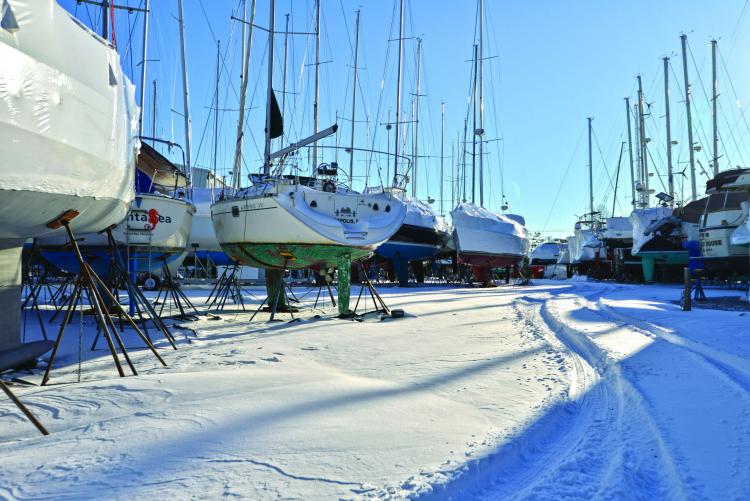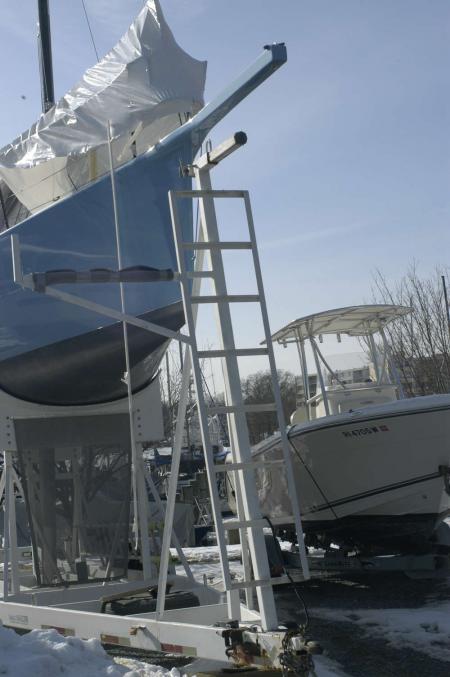Harsh winters such as we’ve experienced the past few years on the Chesapeake should bring about serious consideration of winterizing your boat—now, not after the creek ices over. Last year, right outside the SpinSheet office’s window looking out on Back Creek, we watched a beautiful, newly refurbished sailboat sink at her dock on a winter day. Surely the boat’s owner, who had spent large amounts of time and money renovating the boat, never envisioned that she’d sink from poor winterization. Boatyard managers confirm that it happens every year—and from the most basic neglect.
The most surefire way to avoid sinking is to haul your boat out of the water for the winter. You will avoid ice forming around the hull and weathering (or breaking) of lines. Erik Lostrom, owner of Scandia Marine in Annapolis, notes that wintering on the hard will allow the fiberglass to dry out and lessen the chance of blisters forming over time. Storing your boat onshore may be more expensive than keeping her in the water, but it may save you maintenance fees in the long run. If we had a dime for every boatyard manager who’s said, “Don’t cover your boat with a tarp,” we could buy at least one good custom cover with it. Don’t do it. Tarps flap in high winter winds and degrade in the sun. We’ve heard of boatyard managers making bets on how long tarps will last. If there’s a joke about it, it’s probably true.
Do cover your boat, though. Shrink wrapping is a good option as are custom covers. Make sure there is good ventilation to prevent too much condensation or mildew. Some sailors use heaters to stave off moisture in the boat’s interior and to keep the engine warm, but be sure to purchase a marine-safe heater. Many household heaters or ceramic ones can tip over and ignite the boat and/or overtax your electrical system and have similar negative effects.
Antifreeze or vodka: use the poison of your choice to winterize your freshwater systems. One deep freeze can wreak havoc on a boat. Get that water out of your system beforehand. Three words you don’t want to hear: “cracked engine block.”

Click here for BoatU.S.’s 15-page guide.
Here's West Marine's Winterization Center.
Here's a good winterization checklist by Diversified Marine Services.





